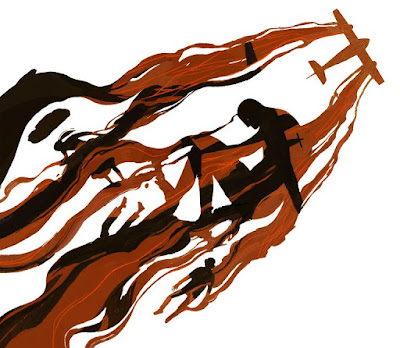Saving Face: Who Are We Really Saving?
In the case of Vietnam, there seem to be several tiers of
lies and untruths, stemming from the desire to “save face” on both a personal
and a national level (Rowan). As Andrew Rowan illustrated, “bend[ing] the
truth” is normalized in Vietnam, and “white lies are more-often- than-not perfectly acceptable,”
they are an integrated part of the social culture (Rowan). However, one of the
more insidious efforts to “save face” comes not from Vietnam, but rather from
the United States.
Operation Ranch Hand, was an aggressive chemical warfare
tactic by the United States the ramifications of which continues to echo
through generations (“Agent Orange”). The United Sates Government maintains ignorance
and refuses to link the multitude of health problems and implications related
to the systematic spraying of Agent Orange between 1961 and 1971 in Vietnam
(Palmer 1061). It is clear that the United States’ desire to “save face,” takes
precedence over basic human decency and their blatant refusal take
responsibility for such insidious war crimes is utterly disgusting. In order to
move forward a foundation of trust must be established preempted by “compensation
and accompanying international recognition are essential in the improvement of
future living conditions and social acceptance of victims both within and
outside of Vietnam” (Palmer).
The strong desire to maintain a pristine outward appearance
is not limited to governments or nations and we cannot ignore University
tactics which prioritize protection of the institution. Universities and
colleges are quick to proclaim how seriously they consider issues surrounding
sexual assault and that it is an issue of the “highest priority” and they take
it “very seriously” (Sexual
Violence Prevention). However,
there are powerful conflicts of interest at play which succeed in undermining
such claims. Universities have historically made it difficult for students to report sex crimes. As a result, when it is difficult for the student to be heard or find justice, statistics are kept low and the image of the institution is kept safe. Ultimately, the “Universities are protecting a brand. They are
selling a product” and there is a deeply seeded desire and vested interest in
maintaining an untarnished public perception (The Hunting Ground).
Obviously, saving face is a universal and relatable
condition. It can be argued it is human fallibility to impress others by maintaining a positive reputation which leads to the inclination to not accept full responsibility for one’s negative actions. However, personal and professional integrity
demands that society no longer accept nor allow cover-ups especially when it comes to sexual assault and hideous war crimes. We must not allow such blatant atrocities
to be swept aside, negated or minimalized, by any nation, institution, or individual.
Question: In what ways can society change in order to promote and encourage acceptance of responsibility on both a personal and international level?
References
“Agent Orange.” History.com, A&E
Television Networks, 2011. Web. 19 Nov. 2017.
Gribble, Cate. “National Policies on
Skilled Labor and the Cross-Border Student Market, with a Focus on
Vietnam.” Higher Education Dynamics Higher Education in the
Asia-Pacific, 2011, pp. 291–307.
The Hunting Ground. Kirby Dick. The Weinstein
Company, 2015. Film.
Kim, Hokyoung. “The Forgotten Victims of Agent Orange.” New York
Times, Nytimes, 15 Sept. 2017. Digital Image. 19 Nov. 2017.
Palmer, Michael
G. “The Legacy of Agent Orange: Empirical Evidence from Central Vietnam.” Social Science & Medicine. Vol. 60,
no 5, Mar 2005, pp. 1061-1070.
Rowan, Andrew.
“Expectations, Social Context, and Miscommunication.”
“Sexual Violence
Prevention and Response.” Home | Sexual Violence Prevention and
Response, 2 Oct. 2017, sexualviolence.ucdavis.edu/.

No comments:
Post a Comment